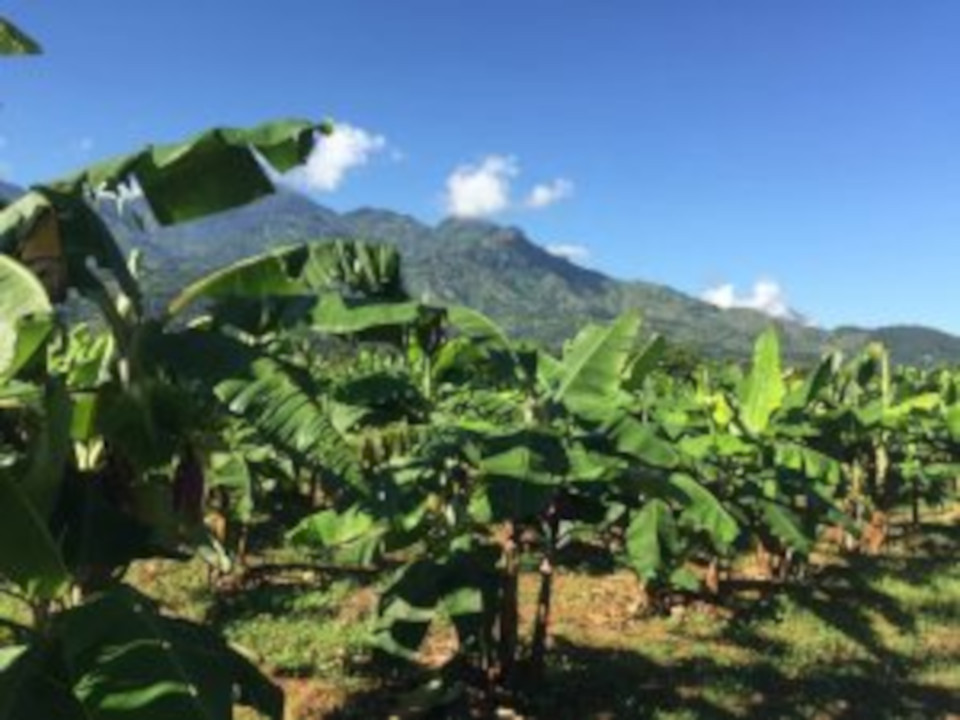Bananas play a crucial role in the diet and economy of many African countries, including Tanzania. This tropical fruit, versatile in its uses and varieties, is deeply embedded in the cultural, social, and economic fabric of many African countries. In Tanzania, bananas are not just a staple food but also a significant cash crop, supporting the livelihoods of millions of smallholder farmers. The versatility of bananas allows them to be a major dietary component for millions of people. Bananas are a primary source of carbohydrates, vitamins, and minerals for many African populations.
In Tanzania, bananas are a central part of both the diet and the agricultural economy. The country is one of the leading producers of bananas in Africa, with significant cultivation in regions such as Kilimanjaro, Arusha, Kagera, and Mbeya. Economically, bananas are very important produces for smallholder farmers across Africa.
Apart from food, they provide a source of income through local and regional markets. In some regions, banana processing industries have emerged, producing banana chips, banana wine, and other products, adding value and creating employment opportunities. The fruit is sold in local markets and occasionally exported to neighboring countries, contributing to both local and national economies. The banana value chain in Tanzania includes farming, transportation, processing, and marketing, providing employment opportunities along the way.
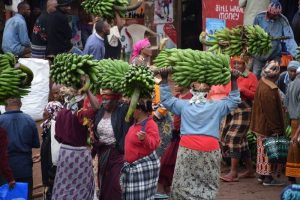
In many Tanzanian households, bananas are used in everyday meals, including breakfast, lunch, and dinner. Dishes like banana stew, fried plantains, and matoke are very popular. Banana are consumed in numerous ways as a ripe snack, cooked, fried, or grilled. Steamed or boiled mashed bananas (matoke) are a staple dish, mainly Kagera and other regions in Tanzania.
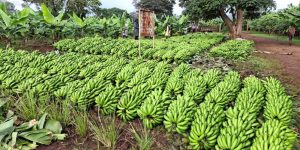
Despite their importance, banana farmers in Tanzania face numerous challenges. Pests and diseases, such as banana bacterial wilt and Panama disease, pose significant threats to banana production. Climate change impacts, such as unpredictable rainfall and increased temperatures, further exacerbate these challenges. Additionally, farmers often struggle with inadequate access to modern farming techniques, quality planting materials, and markets.
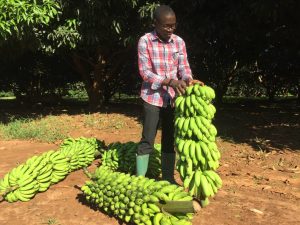
A Technical staff Mr. Respicius Paul Bugaya from SUA Main Gate Section inspected the harvested banana
Sokoine University of Agriculture (SUA) is implementing a range of programs aimed at bolstering the agricultural sector. These initiatives focus on providing education, conducting research, and engaging in the production of various crops, such as bananas. Through its Department of Model Training Farm, SUA not only enhances the skills and knowledge of its students but also supports local farmers and the broader agricultural sector in Tanzania.
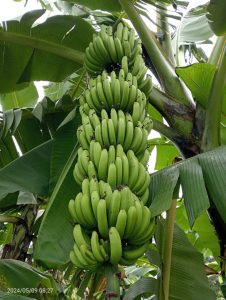
The SUA Model Training Farm was established to enhance the quality of teaching, research, field exercises, and outreach activities related to crops and animal training at Sokoine University of Agriculture. It aims to provide hands-on training to students, improve course offerings, and produce graduates equipped with practical skills for the job market. The farm serves as a crucial resource for students to gain real-world experience and for faculty to conduct applied research that directly benefits the agricultural sector.
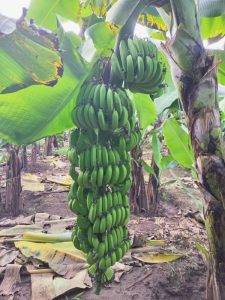
For more information, VISIT
Witness Banana Growing Greatness at SUA Model Training Farm
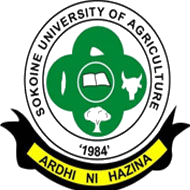
Sokoine University of Agriculture
Share this page

